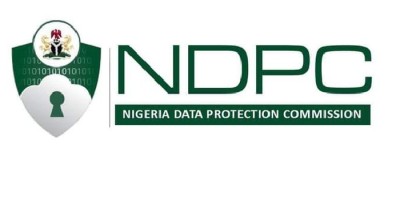- Home
- Grey Matter
- New Regulatory Frameworks To Govern Electronic Payments & Collections And Issuance Of Bankers Acceptances & Commercial Papers In Nigeria
New Regulatory Frameworks To Govern Electronic Payments & Collections And Issuance Of Bankers Acceptances & Commercial Papers In Nigeria
Posted on Thu 3 Oct 2019
- Download Resource
-
-
PSSPs are to obtain operating licenses from the CBN and offer approved end-to-end electronic payment solutions, systems and services to all stakeholders. Similar to DMBs, OFIs and MMOs, PSSPs are expected to maintain customer service contact centers for resolution of complaints and publish the details via multiple media. Also, they are to provide, alongside their mandatory monthly returns to the CBN, a set of specified transaction data relating to salary, pension and tax payment. In carrying out their roles, PSSPs are to comply with CBN stipulated timelines for returns regarding transaction completion and unapplied funds.
-
The Regulation also prescribes operational standards for Other Stakeholders including Payers and Beneficiaries. Accordingly, Payers with a staff strength of twenty (20) and above are to adopt end-to-end electronic payment of salaries for their employees and maintain appropriate account with DMBs or OFIs. They are also required to adopt a CBN approved end-to-end electronic payment platform to be used for all forms of payments and collections. In addition to the foregoing, Payers are to remit taxes, statutory payments, contributory pension funds with associated electronic schedules only on a CBN approved end-to-end e-payment platform. For Beneficiaries (which include Employees; Pensioners; Suppliers; Revenues Collecting Organizations; Pension Fund Administrators and Pension Fund Custodians), they are to maintain appropriate bank or collection accounts with DMBs or other CBN approved financial institutions as may be applicable to them. They are also required to use or adopt a CBN approved electronic payment platform while equally rendering required returns to the CBN, as may be specifically applicable, on all electronic transactions carried out.
COMPLIANCE REQUIREMENT & SANCTIONS FOR NON-COMPLIANCE
From the date of commencement of the Regulation, all DMBs are required to dishonor payment instructions issued by organizations (Payers) with more than twenty employees, for all forms of salaries, pensions, suppliers and taxes; when the instructions are not transmitted on a CBN approved straight-through electronic payment and collection platform. This is to ensure that qualifying public and private sector organizations no longer transmit payment instructions and associated schedules to DMBs through unsecured channels. Such channels classified as unsecured by the Regulation include paper-based mandates, flash drives, compact discs (CDs) and email attachments.
The Regulation provides for relevant infractions that may be committed by CBN regulated Stakeholders. The stated infractions and the sanctions prescribed against them (which range from warning, to payment of fines, and suspension of operating licenses/approvals, or as may be prescribed in applicable CBN circulars) are contained in the two (2) Schedules to the Regulation.
DISPUTE RESOLUTION
The new Regulation makes provisions for settlement of any dispute, controversy or claim that may arise out of the implementation of the Regulation. The dispute resolution provisions also cover any claim for breach, termination or invalidity of any terms made pursuant to the Regulation. Accordingly, such disputes or claims shall be settled in accordance with the CBN’s dispute resolution mechanism, and if unresolved, may be referred to arbitration in accordance with the rules for arbitration of the Regional Centre for International Commercial Arbitration, Lagos, Nigeria.
-
-
Guidelines on the Issuance and Treatment of Bankers Acceptances and Commercial Papers
OBJECTIVE
The Guidelines were issued in furtherance of the CBN’s goal to deepen the Nigerian money market. Thus, it is expected that they will facilitate the effective and efficient functioning of the market for negotiable financing instruments; through a framework that will ensure uniformity and standardization in the treatment of BAs and CPs across the banking industry.
GENERAL CONDITIONS
The Guidelines prescribe general conditions guiding the creation of a BA and CP, which also include applicable restrictions.
Hence, among other things, a BA
-
is required to have an underlying trade transaction which will stand as collateral. This is designed to work by requiring banks to hold the title documents to the associated merchandise as the basis for acceptance;
-
is required to be represented by a physical instrument that should be signed by the drawer and properly executed by the bank;
-
is required to be drawn on and accepted by a bank, pursuant to an acceptance credit line to finance the drawer’s purchases of goods from, or sale of same to, either a resident or non-resident person;
-
shall not be drawn to finance the sale or purchase of services unless otherwise allowed under the Guidelines;
-
shall not be drawn to finance the sale or purchase of goods by individuals; where the two parties to the trade transactions are parts of a single legal entity, or if the two parties are sole proprietorships operated/owned by the same individuals or where the two have related proprietors, and if the transacting parties are partnerships in which the partners are the same individuals or where there are common partners holding majority shares in the partnerships; and
-
is allowed to be drawn where the two transacting parties are related corporations only upon the conditions; that the two related parties are indeed separate legal entities, that the trade transaction was undertaken at arm’s length and involved a genuine transfer of title to goods verifiable through documentary evidence, and if the transaction is to finance cross border trade.
-













